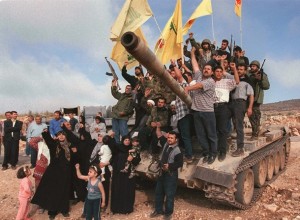From: Oliver Miles
Sent: Mon, Jan 31, 2011 9:07 pm
Subject: LebanonMEC Analytical Group
1 February 2010
LebanonThe Lebanese president has appointed Najib Miqati, former prime minister and billionaire, as Prime Minister after he received 68 votes in support in the Lebanese parliament including those of the Druze leader Walid Jumblatt and his party, against 60 for Saad Hariri. Like all Lebanese Prime Ministers, under the conventions of the National Pact, Miqati is Sunni, but Sunnis in Tripoli (Lebanon) denounced his appointment as a “coup” and “Persian tutelage over Lebanon”, burnt tyres, blocked roads, attacked media outlets, and clashed with the police, with smaller disturbances in Beirut and Sidon. Miqati is reported to want to form an all-party government, but cabinet making is likely to be a long business.
We circulate below a comment by Rami Khouri of the Beirut Daily Star.
 Hizbullah’s Government
Hizbullah’s Government
 Hizbullah’s Government
Hizbullah’s Government31 Jan 2011, BEIRUT
…
The new Lebanese Prime Minister-designate, Najib Mikati, has been widely portrayed in the international media as “Hizbullah’s man,” and his mandate to form the next government has generated considerable speculation about the consequences of a government formed in the shadow of Hizbullah, which means Iran and Syria to most people. Indeed, critics of Hizbullah and the Mikati appointment — especially Sunni supporters of former Prime Minister Saad Hariri — speak disdainfully of Mikati as the wilayet el-faqih prime minister, referring to the formal title (“rule of the jurisprudent”) of the Iranian supreme leader system. Hariri and many of the Lebanese Sunnis he represents see the events of the past weeks as a successful coup by Hizbullah to take over the government.
All of this is incredibly significant in Middle Eastern terms, but the exact significance and consequences remain rather hazy to most observers. We have to wait and see the composition and the political program of the Mikati government before judging the full meaning of what is going on. Several important aspects of this process can be identified already, though, and, like most political developments in Lebanon, they relate simultaneously to local, regional and global issues — because Hizbullah itself is an organization that operates at all three levels.
I would first point out that if Mikati’s appointment indeed means that we now have a Hizbullah-named government in Lebanon, the most sensible thing to do it to wait and see what it does before judging it prematurely simply on the basis of whether one likes or dislikes Hizbullah. This is especially true for the United States, which has consistently made the wrong decision in recent years in opposing and fighting leading Islamist movements that enjoy strong support and considerable legitimacy in their own countries. The combination of Hizbullah’s reputation for efficiency and diligence, on the one hand, and Mikati’s personal integrity, respect and business success, on the other, suggests that this government may actually start to address some of the pressing issues and threats facing all Lebanese, including inadequate electricity supplies, declining water quality, rising prices, environmental degradation, corruption and severe developmental disparities across the country. Hizbullah, and its main Christian ally Michel Aoun have repeatedly raised these domestic governance issues in their criticisms of the Hariri and previous governments, alongside other divisive matters such as relations with the United States, or the role of the Special Tribunal for Lebanon (STL) that will indict and try in court those individuals, organizations or governments that it believes killed Rafik Hariri and 22 others.
This indicates to me that perhaps the most important thing about the change of government that Hizbullah and its allies have forced is that they now will face the pressures of accountability that heretofore they have largely avoided at the national level. Hizbullah has always disdained domestic Lebanese politics, in favor of its self-appointed primary role as the “resistance” movement that protects Lebanon from the two main dangers it sees: Israeli aggression and American-led Western cultural assault. This process today is the culmination of 20 years of its gradual movement into Lebanese domestic politics — from local government, to national parliament, to the cabinet, and now, indirectly, to the prime ministry — making it the single most powerful political group in the country to go along with its being the most important military force.
The problem with all this is that Hizbullah is not an ordinary political party or sectarian-based movement like most other Lebanese political groups. Its primary role is anti-Israeli military resistance or deterrence and anti-American political-cultural resistance, and protecting that role through political means; and its most significant relationships include links with Iran and Syria. This means that for many of its Lebanese and other critics, Hizbullah is a danger to Lebanon, rather than an asset. Its movement into the heart of Lebanese politics is an opportunity for Hizbullah both to reformulate its image and diversify its core mission — via the Mikati link — to include domestic good governance and equitable service delivery that would allow more and more Lebanese to relate to it as something more than an instigator of catastrophic war with Israel or a problematic Trojan Horse for Syrian and Iranian influence in Lebanon.
This is largely uncharted territory for such Islamist and militant movements in the Middle East. Hamas is a poor cousin to Hizbullah in this respect, and the successful and now governing Justice and Development Party in Turkey lacks Hizbullah’s military dimension or ethno-pluralism national context. The STL is the immediate issue that challenges Lebanon and the government-formation process, but this is a transient issue that will be just one of the criteria by which Hizbullah’s historic move into the heart of Lebanese political governance will be judged. The others are socio-economic management, reducing corruption, promoting equitable development, and stabilizing sectarian relations at home, and regional issues such as ties to Israel, Syria, Saudi Arabia and Iran.
…
MEC International Ltd.
www.meconsult.co.uk
Registered in England No. 3212282,
Reg Office: 25 Harley St, London W1N 2BR
